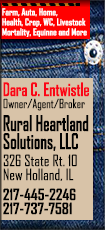|
 The document, dated in May but released on Monday, said production
of domestic baby formula is increasing, there is more consumer
confidence in domestic formula, and Chinese brands are getting more
competitive globally. The document, dated in May but released on Monday, said production
of domestic baby formula is increasing, there is more consumer
confidence in domestic formula, and Chinese brands are getting more
competitive globally.
Chinese parents switched heavily to buying foreign brands after a
domestic 2008 tainted-milk scandal, when several infants died after
the industrial chemical melamine was added to milk powder to raise
protein levels.
The document was jointly stamped by the National Development and
Reform Commission and six other ministries, including the Ministry
of Commerce and Ministry of Industry and Information Technology.

It didn't say when it expected China to reach the 60% target.
[to top of second column] |

The document also called for further consolidation and restructuring
within the industry to eliminate outdated capacity and equalize
product quality.
The push to expanded domestic sources comes as international food
groups, such as Nestle, launch new lines of baby formula targeting
smaller cities in China.
Domestic infant and toddler formula accounted for 43.7% of the
Chinese market in 2018, after production grew 21% that year, data
analytics firm Nielsen said in a report in March.
(Reporting by Pei Li and Brenda Goh; Editing by Neil Fullick)
[© 2019 Thomson Reuters. All rights
reserved.] Copyright 2019 Reuters. All rights reserved. This material may not be published,
broadcast, rewritten or redistributed.
Thompson Reuters is solely responsible for this content. |